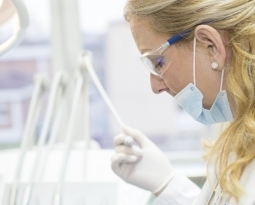Monumental medical technology: from at-home testing kits to AI software finding patients for clinical trials
In the 1600s, it was almost a miracle to celebrate a 30th birthday. Now, our average lifespan is around 71 years. In fact, in 2014, there were 72,197 Americans over the age of 100. This isn’t an accident; we’re living longer, healthier lives because of medical improvements, enhanced by evolving technology. Medicine and technology go hand in hand.
Technology and People
In the 21st century, technology is growing rapidly, and it makes sense that it’s used to help people. Augmented reality is being used help people with retinal degeneration and robot assistants are being implemented in hospitals.
Here’s some more companies whose remarkable tech is improving the medical industry:
Everlywell
Getting blood, urine and saliva tests at a GP can be inconvenient, timely and awkward. Everlywell’s modern-day solution is ingenious: the Austin-based company offers at-home lab testing kits and provides quick, digital results.
Patients can order more than 30 different tests, including food sensitivity, vitamins, STDs and thyroid. The testing kits come with instructions, sterile collection tools and pre-paid shipping. The company uses dried blood spot (DBS) testing so vials of blood are not needed, just a drop. CLIA-certified labs (used by hospitals and physicians across the U.S.) then review the samples, and patients receive secure, accurate results with actionable data and insights.
UnaliWear
UnaliWear creates wearable technology, in the form of watches, that have fall detection, medication reminders, and wandering notifications. The ‘Kanega’ watches are waterproof, voice activated and self-contained, meaning there’s no need to connect to a smartphone or other device. They do, however, have Wi-Fi and Bluetooth to connect to other medical devices, like hearing aids. Their artificial intelligence (AI) technology learns the wearer’s lifestyle to provide predictive, pre-emptive support. The company’s goal is to help aging people keep their independence with dignity, and keep their family feeling assured.
Analyzing Medical Data
As well as living longer, there are also more people in the world – roughly 7.7 billion. That means there’s an enormous amount of diverse, confusing, health-related data in the world, which ranges from cell-level to population studies. To make use of this data, it needs to be collated and connected in a dynamic, intuitive way, which is where technology comes in again. We’re already seeing machine learning software being used to find patterns, predict at-risk patients and help find solutions.
Here’s some more companies with impressive data analytics technology:
Galen Data
This Houston company offers a secure, Cloud-based platform that connects to medical devices, including pacemakers and sleep apnea machines. The system can provide diagnostics, and keep clinicians, patients and families informed. This data is then collated and visualized for review. As well as meeting FDA and HIPAA compliance standards, the platform is mobile friendly, allowing for alerts and notifications. It’s also scalable and customizable, so starting small or with unique equipment is no issue.
By collating and analyzing the data, companies can also automatically update patient data and see common problems. The company’s goal is to simplify medical device connectivity easy, so clinicians, patients and their families have one less thing to worry about.
Deep6.ai
Deep6.ai’s software analyzes thousands of medical data points to find patients for clinical trials. The first step is extracting data such as symptoms, diagnoses, test results and socio-economic factors. It then analyzes this data – making connections, finding patterns and building clinical profiles. Researchers, analysts and doctors can use and compare these profiles to see who will benefit most from certain treatments.
By doing this, the best patients are selected for clinical trials. Hospitals and pharmaceutical companies can reduce their risks and gain quicker evidence of treatment-effectiveness. Completing these trials faster means more time for new research and innovation.
NarrativeDX
There’s no doubt that hospitals do fantastic work, but there’s always room for improvement, and negative patient experiences can be costly. Narrative DX makes this a simpler process by collating patient and employee feedback data to provide insights and suggestions. The company goes beyond a survey score, and instead collates survey comments, online reviews, social media posts and comments, and asks why. AI technology then analyses the results and identifies key issues. From this, hospitals can create focused, specific improvements. Because NarrativeDX analyses both patient and staff feedback, results mean happier patients and more engaged, driven employees.
Are you working with innovative medical technology? Did you know your efforts could be eligible for the R&D Tax Credit and you can receive up to 14% back on your expenses? To find out more, please contact a Swanson Reed R&D Specialist today or check out our free online eligibility test.
Who We Are:
Swanson Reed is one of the U.S.’ largest Specialist R&D tax advisory firms, offering tax credibility assessments, claim preparation, and advisory services. We manage all facets of the R&D tax credit program, from claim preparation & audit compliance to claim disputes.
Swanson Reed regularly hosts free webinars and provides free IRS CE and CPE credits for CPA’s. For more information please visit us at www.swansonreed.com/webinars or contact your usual Swanson Reed representative.

















